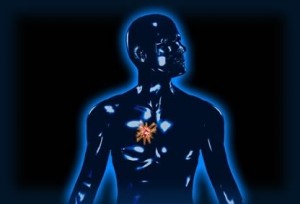 Hyun-Soon (Joy) Chong, associate professor of chemistry, spoke about her work for the cancer therapeutic technology called radioimmunotherapy at the World RadioImmunoConjugate Summit, “Recognizing the Potential of Radioimmunoconjugates for Cancer Treatment and Imaging,” February 1-2, 2012 in Washington, DC.
Hyun-Soon (Joy) Chong, associate professor of chemistry, spoke about her work for the cancer therapeutic technology called radioimmunotherapy at the World RadioImmunoConjugate Summit, “Recognizing the Potential of Radioimmunoconjugates for Cancer Treatment and Imaging,” February 1-2, 2012 in Washington, DC.
RIT uses an antibody to deliver a lethal dose of radiation to specific tumor cells to minimize radiation toxicity to healthy cells. Chong and her team develop promising cancer drugs that can be employed for RIT. Their research is funded by the National Institutes of Health.
According to the Summit, the meeting brought together the world’s largest radioimmunotherapy drug developers, antibody-based imaging specialists, and most prominent academics and fuelled an intense discussion on exciting ongoing RIT research and highlights on the most recent RIT development and how to promote the use of radiolabeled antibody conjugates in the clinic. Chong was one of only four academic speakers, with the others from Johns Hopkins University, the University of California Los Angeles, and the University of Washington. Other speakers were from Memorial Sloan-Kettering Cancer Center, Garden State Cancer Center, national laboratories including NIH and Pacific Northwest National Lab, pharmaceutical companies,and more.
Chong’s speech, “Highly Effective Bifunctional Chelators for Targeted Alpha and Beta Radioimmunotherapy Applications,” explained how she and her team synthesized new promising bifunctional ligands and evaluated them for use in antibody targeted cancer therapy using alpha and beta emitting radionuclides.
